Java has been a fundamental part of the tech industry for many years. Its versatility and widespread use in everything from web development to mobile applications make it a valuable skill for any aspiring programmer. As a beginner, choosing the right resources to learn Java is crucial for building a strong foundation. With so many books available, it can be overwhelming to pick the best one. In this blog, we will guide you through the best books for Java programming options that cater to beginners.
Whether you’re new to programming or transitioning from another language, these books provide the tools, examples, and exercises to help you grasp Java’s core concepts effectively. By the end of this article, you’ll be equipped with knowledge of the best books for Java programming to jumpstart your Java programming journey.
What is Java Programming?
Java programming is a way of giving instructions to a computer using the Java programming language. It’s like writing a set of commands that tell the computer what to do. Java is a high-level, object-oriented language, which means it allows you to create programs that are easy to read, maintain, and scale.
In simple terms, Java’s “write once, run anywhere” principle allows developers to create applications that can run on any device or operating system. Whether it’s a website, a mobile app, or a large software system, Java helps developers build powerful, efficient programs.
Java organizes code using OBJ, making it easier to structure and manage larger projects. It’s widely used for everything from Android apps to enterprise-level systems, making it one of the most versatile and in-demand programming languages today.
Why Choose Java as a Programming Language?
Java is one of the most popular and versatile programming languages, known for its “write once, run anywhere” principle, which allows it to run on any system with a Java Virtual Machine (JVM). This platform’s independence makes it a top choice for developers worldwide. For beginners, Java offers a simple, easy-to-understand syntax, making it an excellent language to learn.
Its object-oriented nature helps learners grasp key programming concepts like objects and classes, which are essential in software development. It is used to build a wide range of Java applications, from enterprise systems and Android apps to scientific software and data processing tools. As a result, Java skills are highly valued in the job market, making it a worthwhile investment for your programming career.
11 Best Books for Java Programming For Beginners
To get started with Java programming, having the right resources is essential. In this section, we’ve curated a list of the “best book for Java programming” that will guide you through the fundamentals and beyond, helping you master Java at your own pace:-
“Head First Java” by Kathy Sierra and Bert Bates
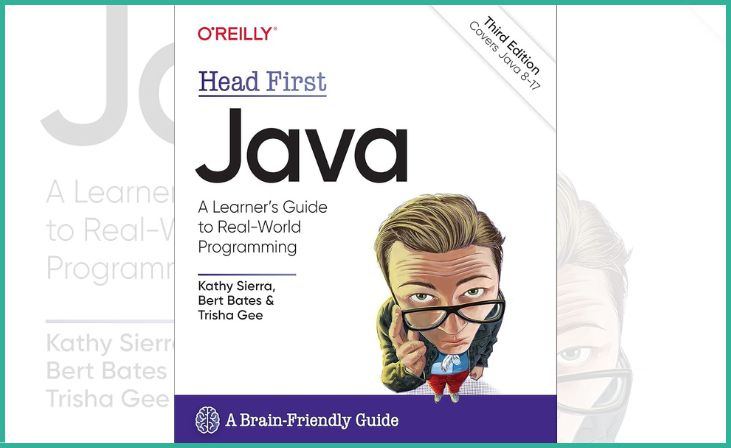
“Head First Java” uses a unique visual approach to teach Java programming. This book breaks down complex topics into easy-to-digest chunks, making it ideal for beginners. It focuses on practical exercises and real-world examples, helping learners grasp Java concepts quickly. The interactive style engages readers, making learning Java a fun and memorable experience. However, it may not be suitable for those who prefer a more traditional textbook approach.
“Java: A Beginner’s Guide” by Herbert Schildt
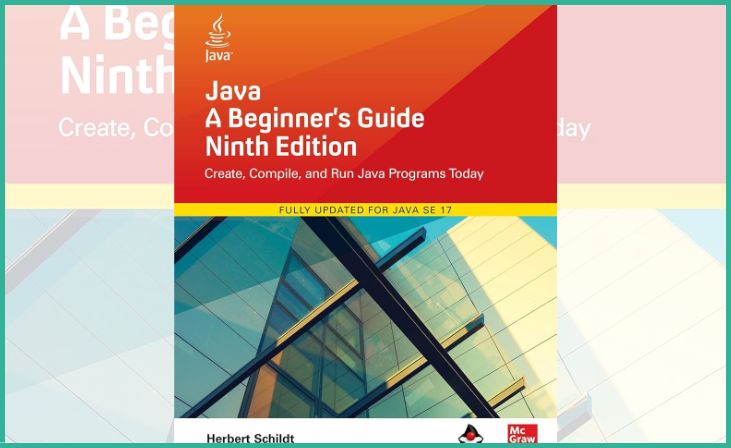
Herbert Schildt’s “Java: A Beginner’s Guide” provides a clear and comprehensive introduction to Java programming. It covers everything from basic syntax to more advanced topics, making it perfect for those starting from scratch. The book is well-organized, and each chapter includes practical exercises to reinforce what you’ve learned. Some readers may find it slightly text-heavy, but the thorough explanations make it a reliable resource for beginners.
“Effective Java” by Joshua Bloch
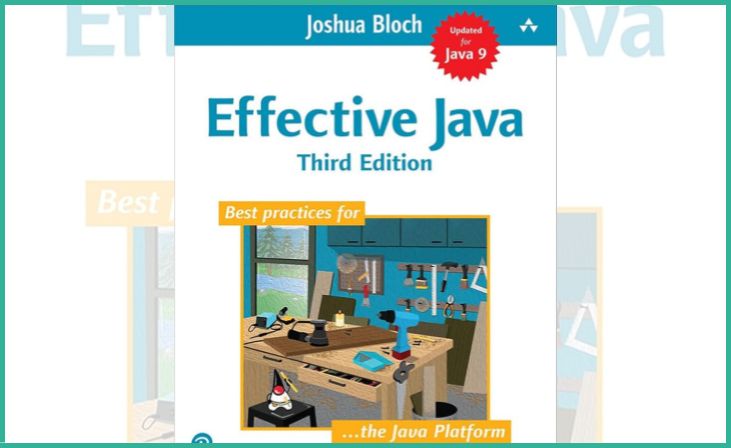
While “Effective Java” is best suited for intermediate learners, its focus on best practices and efficient Java coding makes it a must-read for anyone serious about mastering the language. Joshua Bloch, a renowned figure in the Java community, provides invaluable advice on writing clean, effective Java code. Beginners might find some concepts advanced, but it’s an excellent resource to revisit as your skills progress.
“Java Programming for Beginners” by Mark Lassoff

Mark Lassoff’s book is a practical guide for beginners who prefer a hands-on approach to learning. It introduces Java through real-world examples and simple exercises. It is known as one of the best books for Java programming for self-learners. The book helps you build foundational programming skills while working on fun projects. Its beginner-friendly approach makes learning Java feel less overwhelming.
“Learning Java” by Patrick Niemeyer and Daniel Leuck

“Learning Java” offers a detailed explanation of Java with a focus on object-oriented programming. This book comes with plenty of examples and exercises that help reinforce key concepts. It’s great for learners who need a more in-depth understanding of Java. The layout is clean and well-structured, although the explanations can be dense for absolute beginners.
“Beginning Java” by Ivor Horton
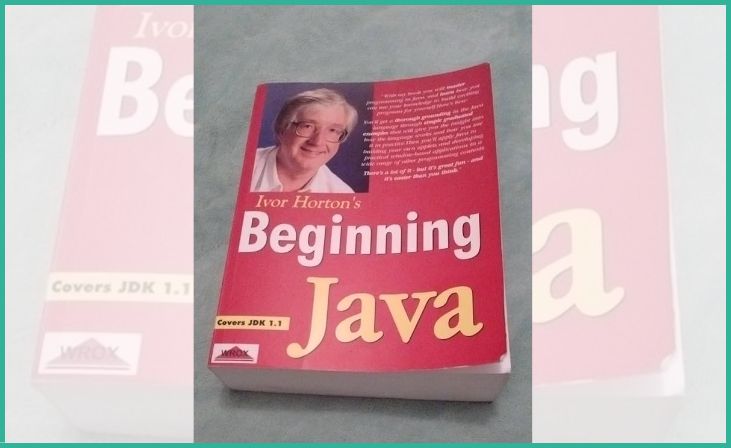
“Beginning Java” by Ivor Horton is an excellent choice for those who want a clear and detailed introduction to Java. It covers the basics of Java and object-oriented principles, making it an ideal choice for beginners. The book is easy to follow and includes numerous examples that demonstrate how Java works in real-world applications.
“Java in 24 Hours” by Rogers Cadenhead
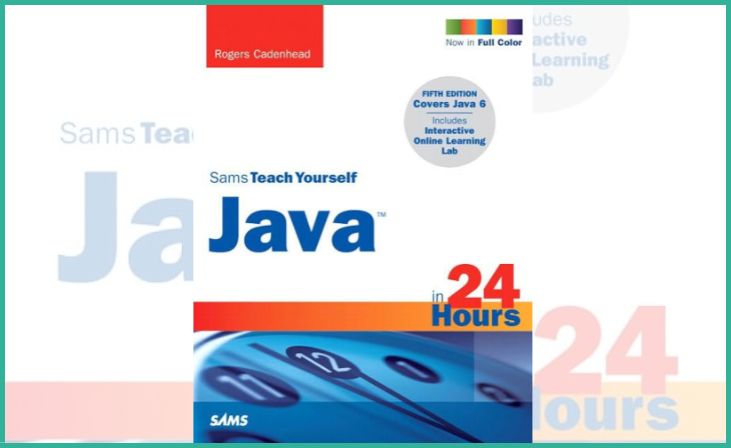
“Java in 24 Hours” is structured to help you learn Java quickly and efficiently. The book’s 24 one-hour lessons cover all the fundamental concepts necessary for a solid understanding of Java. While the rapid pace might seem daunting, it’s an excellent resource for those who need to learn the basics in a short time frame.
“Core Java Volume I—Fundamentals” by Cay S. Horstmann
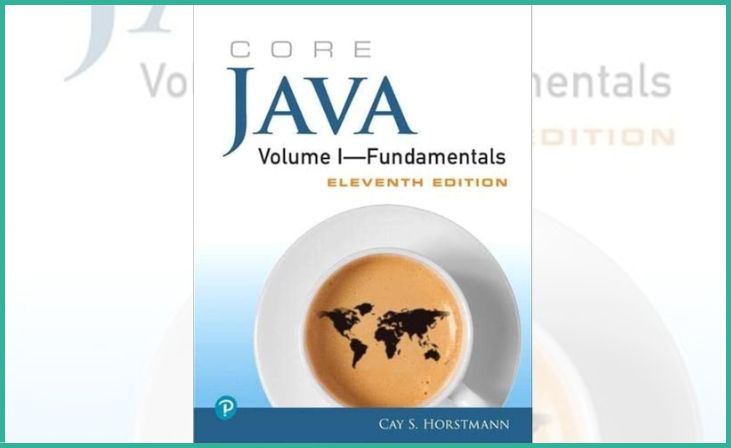
Cay S. Horstmann’s “Core Java Volume I” delves deeply into Java’s core concepts and is perfect for those who want to build a solid foundation in the language. The book is well-regarded for its clear explanations and thorough coverage of fundamental Java topics. However, its depth might make it a better choice for those with some prior programming experience. That’s why it is known as one of the best books for Java programming.
“The Java Programming Language” by Ken Arnold, James Gosling, and David Holmes
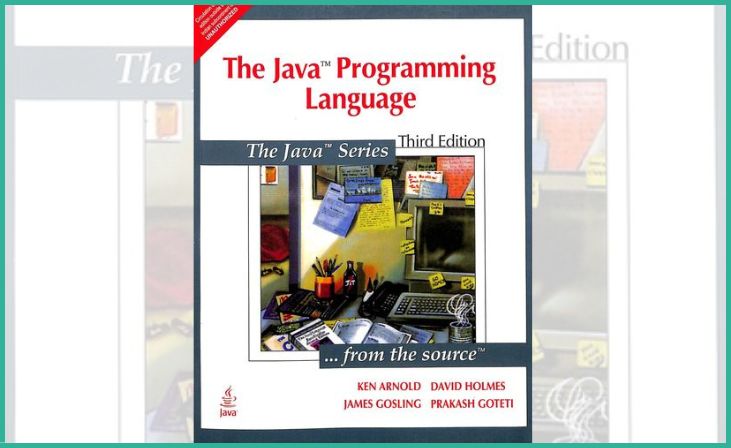
Authored by the creators of Java, this book provides an authoritative guide to the language. It covers Java from the ground up, offering insights into the language’s inner workings. Beginners may find the content challenging, but it’s an invaluable resource for understanding the nuances of Java programming.
“Java For Dummies” by Barry Burd

“Java For Dummies” is an excellent starting point for true beginners. The book breaks down Java concepts into easily understandable language and includes practical exercises to reinforce learning. While it might lack the depth of more advanced books, its accessibility makes it perfect for anyone new to programming.
“Murach’s Java Programming” by Joel Murach
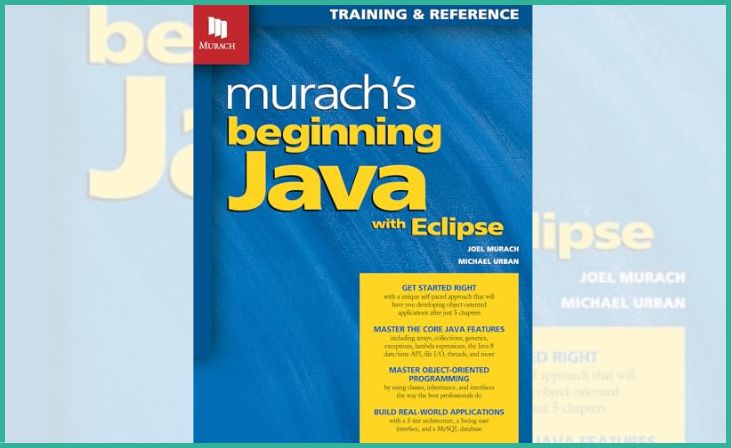
Murach’s Java Programming takes a hands-on approach to teaching Java. The book includes real-world examples and exercises, making it ideal for practical learners. Its clear explanations and engaging format make it a solid choice for beginners looking to build Java programming skills.
How to Choose the Right book for java programming?
Selecting the right book for learning Java depends on your learning style, skill level, and goals. Here’s how to make the right choice:-
Identify Your Learning Style
If you’re a visual learner, books with diagrams, like Head First Java, are best. If you prefer text-based explanations, Java: A Beginner’s Guide is ideal.
Consider Your Skill Level
Books like Java For Dummies offer simple explanations for beginners, while those with some programming experience may benefit from more advanced books like Effective Java.
Look for Hands-on Practice
Books that include exercises and real-world examples, such as Murach’s Java Programming, are great for applying what you learn.
Choose Updated Resources
Make sure the book covers the latest Java features and tools to avoid learning outdated methods.
Balance Theory and Practice
Look for books that offer both core concepts and practical coding examples, like Core Java Volume I—Fundamentals.
Check Reviews
Read reviews from other learners to ensure the book is effective and well-regarded.
Conclusion
In conclusion, selecting the best books for Java programming depends on your learning style and goals. Each book listed in this article offers unique features that cater to different types of learners. Whether you prefer a hands-on approach, a visual style, or a comprehensive textbook, there’s a book for you. Remember, the key to mastering Java is consistent practice and applying what you learn through real coding projects. Pick the book that aligns with your learning style, and embark on your Java programming journey with confidence.
FAQs
How long will it take to learn Java as a beginner?
The time it takes to learn Java varies, but with consistent study and practice, beginners can grasp the basics in a few months.
Is Java still a good language to learn in 2025?
Yes, Java remains one of the most widely used and in-demand programming languages, making it a valuable skill to learn in 2025.
Can I learn Java just by reading books?
While books provide essential knowledge, combining them with practice through coding platforms is key to truly mastering Java.

